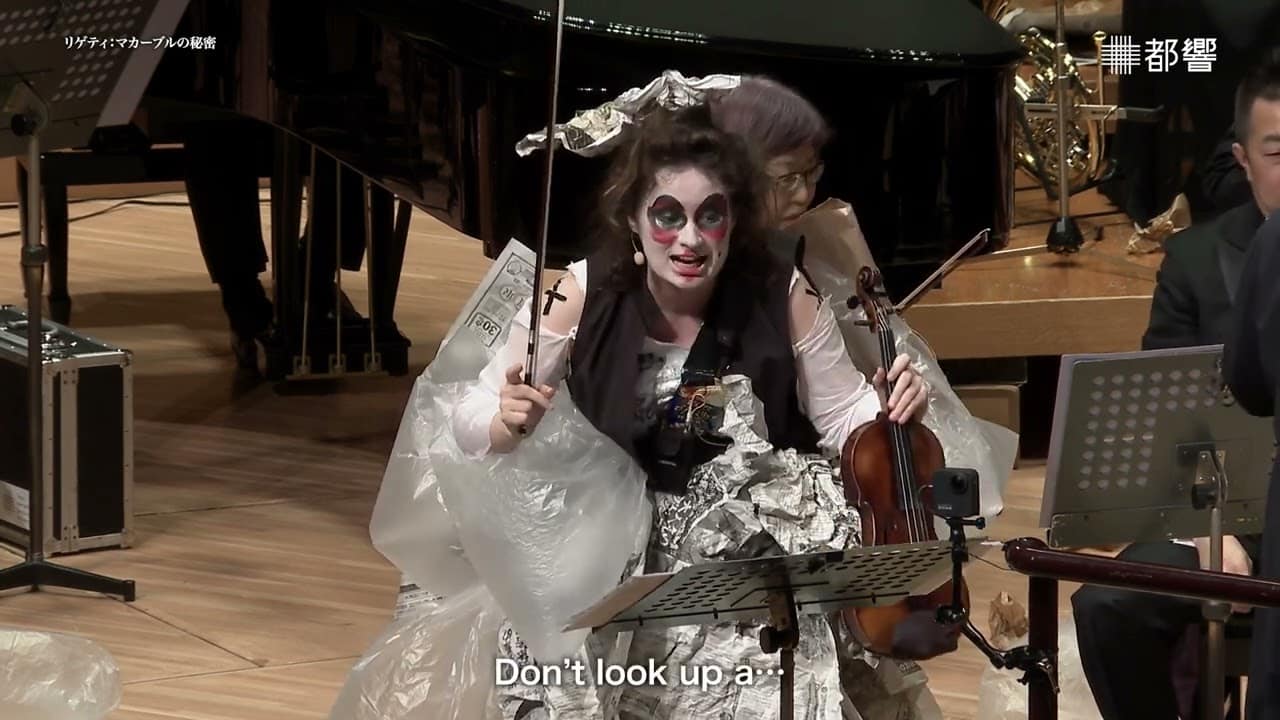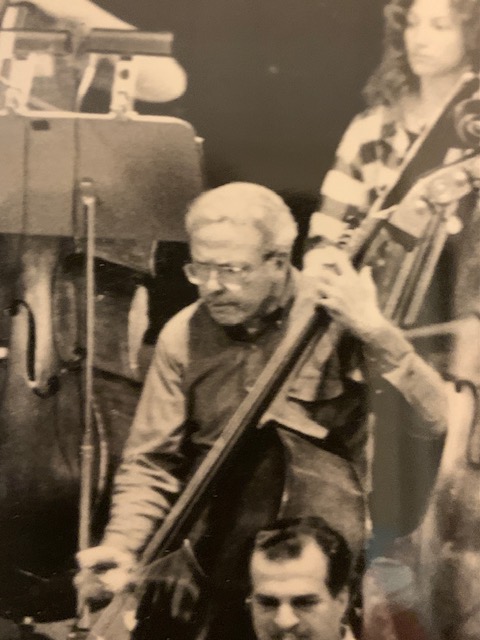No more abbs: A musician pleads for verbal integrity
mainThe 1982 Tchaikovsky silver-medallist Peter Donohoe, one of our foremost pianists, is increasingly appalled by musical abbreviations. (But he has some personal favourites). Read on….

Perhaps I am showing my age, but actually I have never been able, and never will be able, to prevent myself cringing when I hear ‘in’ abbreviations for things that cry out for respect. In recent years, the most irritating one to creep into the wider vernacular – and thus to undermine the significance, the prestige, and the value to society of that which has been abbreviated – is ‘uni’ – meaning ‘university’. I know that I will be shouted down for objecting to it, but that is too bad. It makes the process of attending higher education seem so ordinary, so lacking in stature and, in the worse sense, ‘cool’.
But let’s face it, the music world is crammed full of ‘in’-speak. It makes my toes curl when I hear it, which I often do. This ‘in’-speak is of course now further degraded by its use in text messaging etc., in which it is beginning to seem wrong to type the full word.
And just to be clear, I am not confusing this with the debunking of preciousness or pretentiousness – something I believe it is important to do in order to establish a proper relationship between the composers, performers and listeners. In fact, ‘in’-speak is just the opposite; it IS complacent, precious, pretentious and – worse – exclusive of those who are not ‘in the know’. It comprises a peculiarly British way of showing that the users of such language are unimpressed by the stature of that to which they refer; that they find the things that non-musicians cannot fathom easy, because they are hard-bitten professionals who can take phenomenal difficulties into their stride, and so do not need to show respect – in fact, to do so would be embarrassing. To call Rachmaninov’s Piano Concerto No. 3 in D minor, Opus 30 ‘Rachmaninov Three’ is surely abbreviating it enough; ‘Rakkie Three’ is so appallingly embarrassing that it has made me come out in a cold sweat just from typing it – it is several steps too far. Apart from anything else, he wrote a Third Symphony as well, so even my own abbreviation of Rachmaninov Three is actually inadequate.
Here is a little compendium of some of those words and names that I have found to be an intrinsic part of the music world, and are thus regularly abbreviated in order for the abbreviator to bond with his/her colleague. [By the by, I get the impression that males are far more inclined to commit this sort of language atrocity. Why that should be, I cannot imagine.]
[If anyone can suggest why I am so bothered by this when almost no one else seems to be, I would be very grateful for your insight. It may well be that I have a problem; however, if I have, it is not that I am an incorrigible elitist – the sense that Tony Blair et al used the word for reasons of vote-cadging from the resentful – so please don’t tell me that. Neither am I old-fashioned.]
______________
INSTRUMENTS
Banjos are not ‘jos’.
Clarinets are not ‘clarries’.
Horns are not ‘hooters’.
Trombones are not ‘bones’.
Pianos are not ‘joannas’ – I realise that this could be viewed as an exception, as it was originally Cockney. It still gets on my pip though – in the same way as when what I do professionally is described as ‘tinkling the ivories’, especially as ‘knocking the hell out of the plastics’ would be more accurate.
Cellos and Basses in unison do not comprise ‘cellibass’.
[I have not heard bassoons being referred to as ‘basses’, ‘oons’, or ‘fags’, but there may be good, although diverse, reasons to avoid all three…. ‘Boons’ might work; however, I hope to God it never does.]
Perhaps the most ubiquitous and shoe-splittingly toe-curling: Violins are not ‘fiddles’. [Or indeed any variant upon it e.g. ‘First fiddles’ or ‘second fiddles’. AAAARRRGGGHHH! – and who are the main culprits? – yes, indeed; violinists (not usually solo violinists, but large numbers of members of the fiddle sections (ugh!) of symphony orchestras.)]
______________
COMPOSERS
Tchaikovsky is not ‘Chike’.
Rachmaninov is not ‘Rack’.
Shostakovich is not ‘Shosters’ or ‘Shost’.
[What would the kind of person who uses any of the above three call Messiaen?]
[I appreciate that Castelnuovo-Tedesco is something of a mouthful, and would need shortening to ‘Tesco’ or something similar, should his works become mainstream; but is Tchaikovsky really too long a name for us to be bothered with saying it properly? They certainly never say ‘Chike’ in Russia (‘Чайк?) or anywhere else outside the former British Empire in my experience. Perhaps it is names with three or more syllables that inspire this phenomenon, in which case almost all Russian composers have had it.]
______________
INDIVIDUAL PIECES
Sibelius’ Second Symphony is not ‘Sib Two’.
Rachmaninov’s Third Piano Concerto is not ‘Rakkie Three’.
Prokofiev’s Sixth Sonata is not ‘Prok Six’.
Shostakovich’s Fifth Symphony is not ‘Shosters Five’. In particular, it is not ‘Shostie 5’ – that one makes me nearly gag.
Stravinsky’s The Rite of Spring – I can take ‘The Rite’, particularly as this is the one exception I can think of for which the abbreviation does get used in other languages: ‘Le Sacre’, ‘Vesna’ (‘Весна’), etc. It somehow does not seem exclusive to call it that – difficult to say why.
Don Juan is not ‘The Don’ – Apart from anything else, this ludicrous epithet could refer to Don Quixote, Don Carlos, Don Giovanni and probably many others. [I obviously don’t mind bering referred to as ‘The Don’ myself, but that is another story; in any case, no one does refer to me in that way. Nigel Kennedy came closest when he insisted on calling me ‘Donny’, which, actually, like, man, I can well do without, if that’s cool with you, Kenny.]
______________
Here are some that I do actually like, by virtue of their witticism, which is obviously very different to complacency.
Messiaen’s Vingt Regards sur l’Enfant Jésus: ‘Twenty Peeps’ (thanks to Howard Hartog for this one)
Elgar’s Introduction and Allegro: ‘Introduction and Fast Bit’ (courtesy of Andrew Penny)
Strauss’ Tod und Verklärung: ‘Turd in the Clearing’ (anon. – probably a drunken RNCM bone-player)
Strauss’ Die Frau ohne Schatten: ‘The Constipated Woman’ – (I couldn’t help but slip in one of my own…)
Strauss’ Also Sprach Zarathustra: ‘Also Sprach Zarashoetring’ – I particularly like this because if you fully translate it into English it almost becomes ‘Thus Spake Eddie Shoestring’, reminding me of a 1980s TV series I used to enjoy. (anon.)
John Faulds’ Dynamic Triptych: ‘Symphonic Dipstick’ (Jeremy Hayes)
Any contributions would be very welcome.





Comments